Assessment of Oceanic Manta Ray ( Mobula birostris) and Whale Shark (Rhincodon typus) sightings in Fuvahmulah using Local Ecological Knowledge (LEK)
2022
Irthisham Hassan Zareer (BSc - Maldives National University)
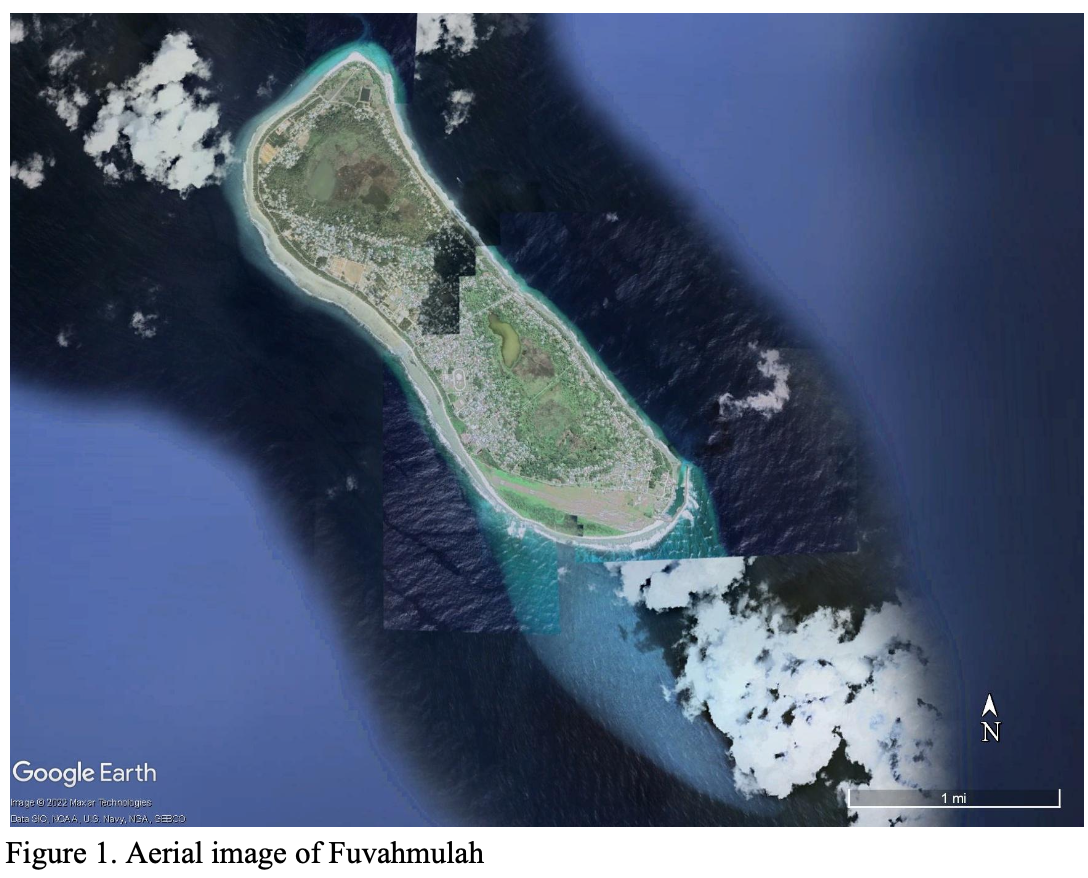
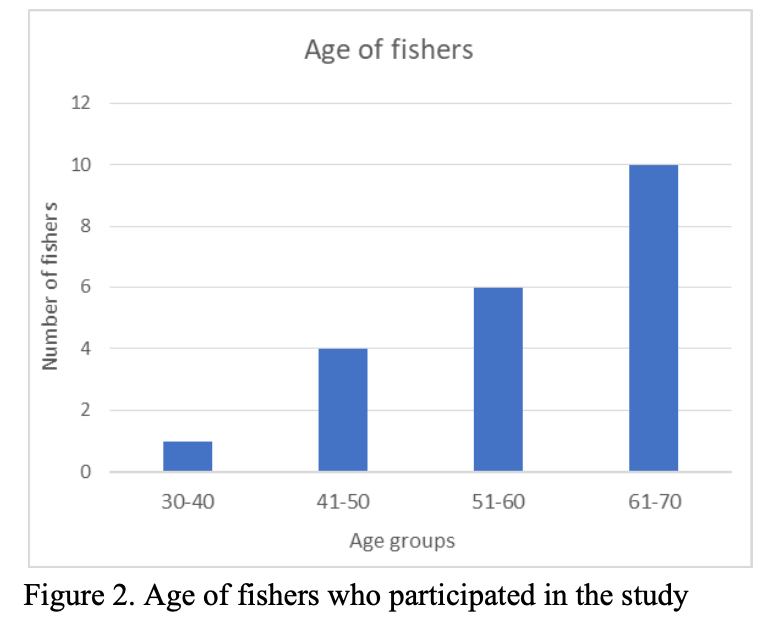
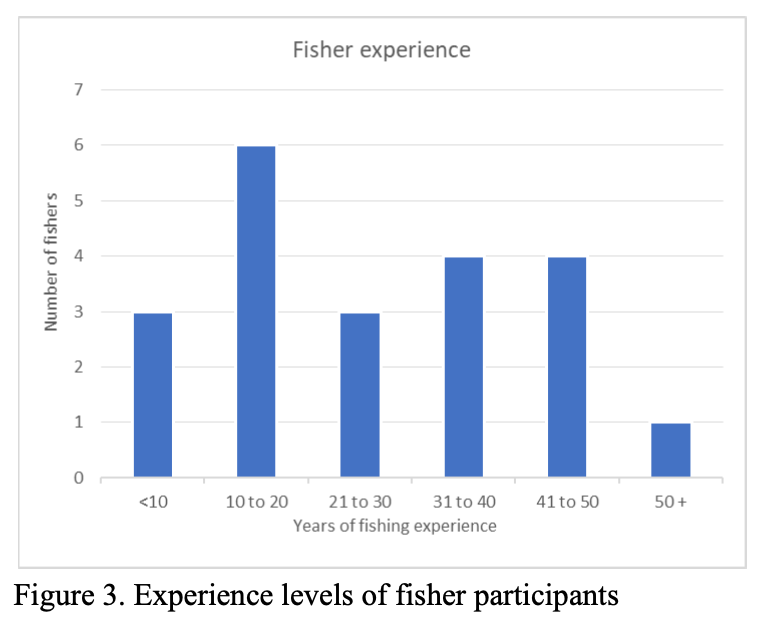
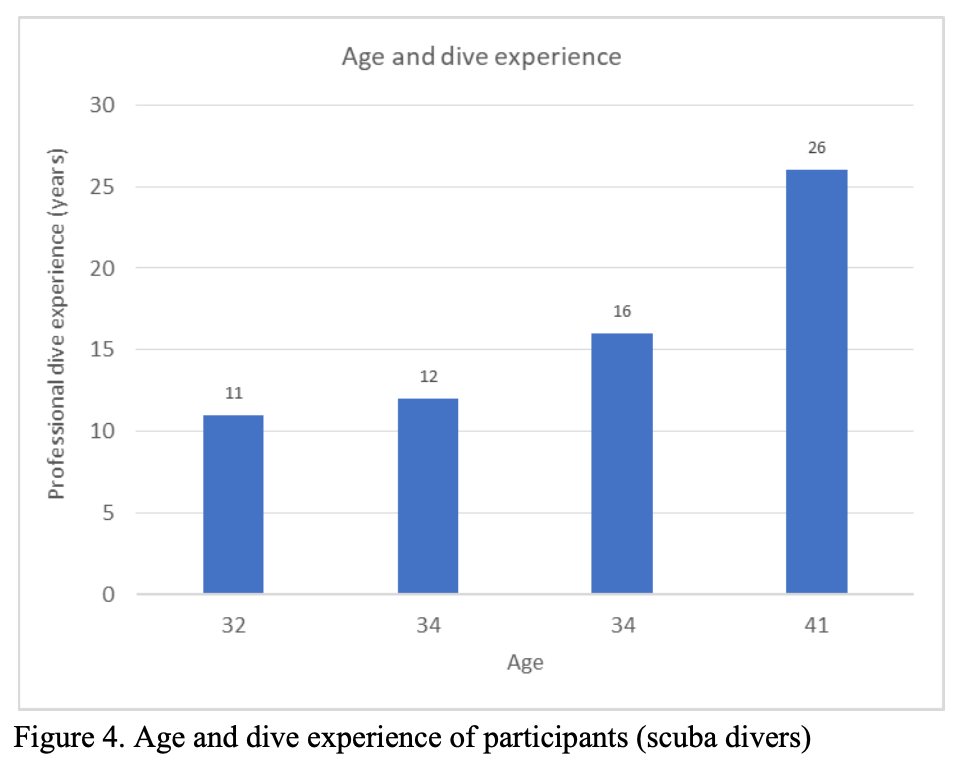
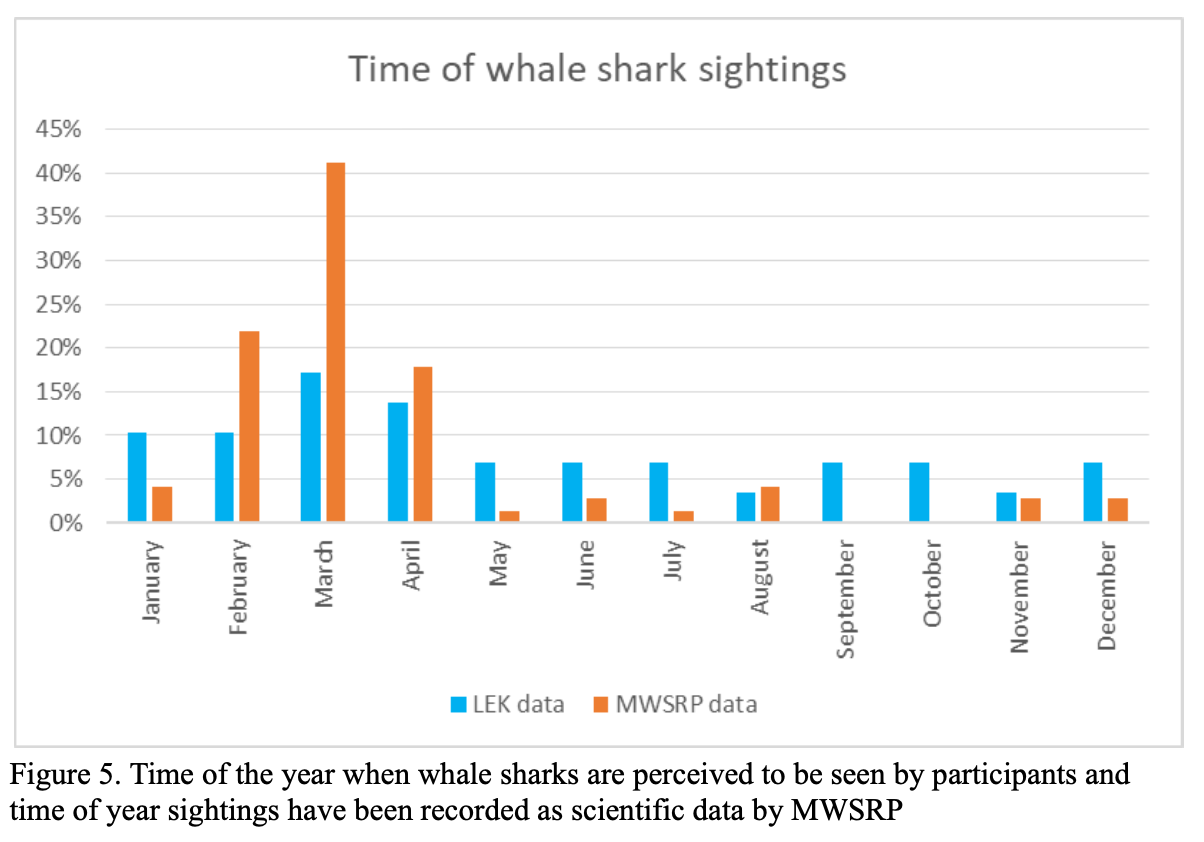
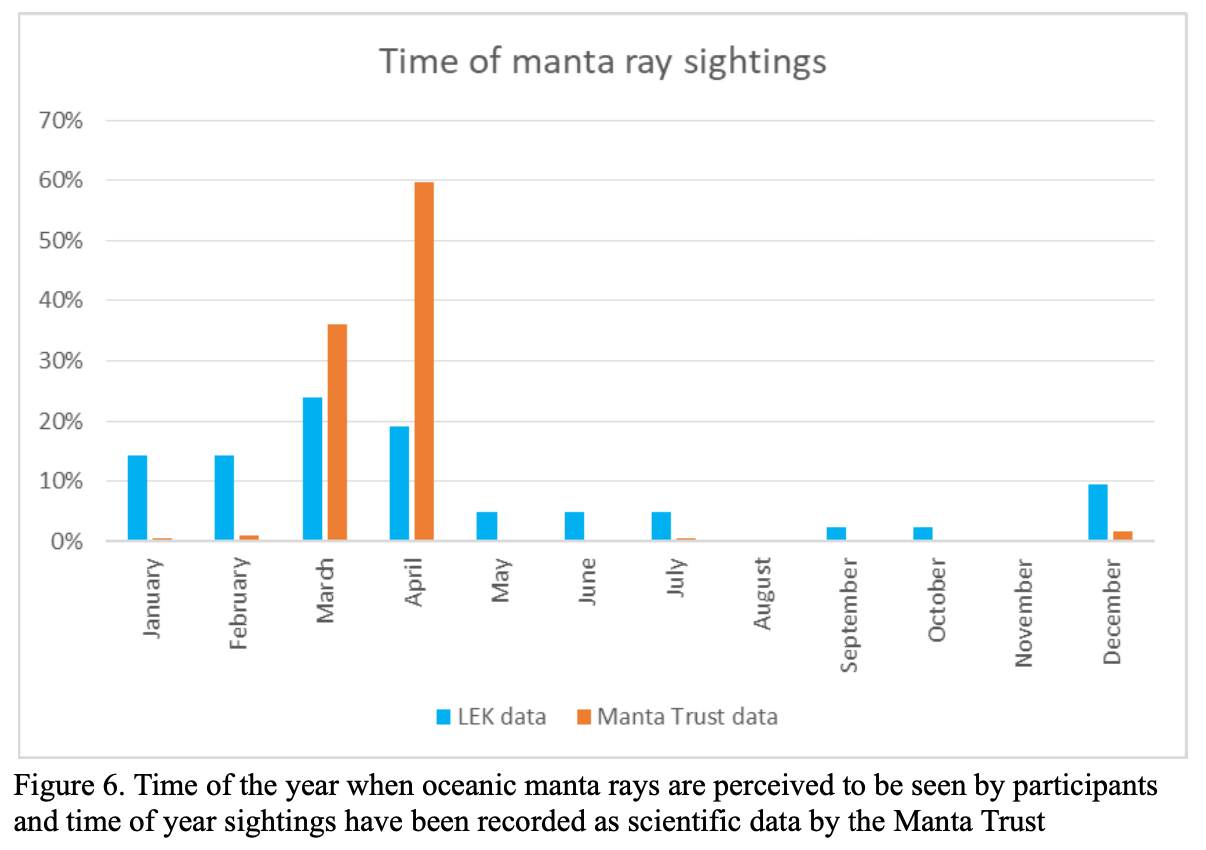
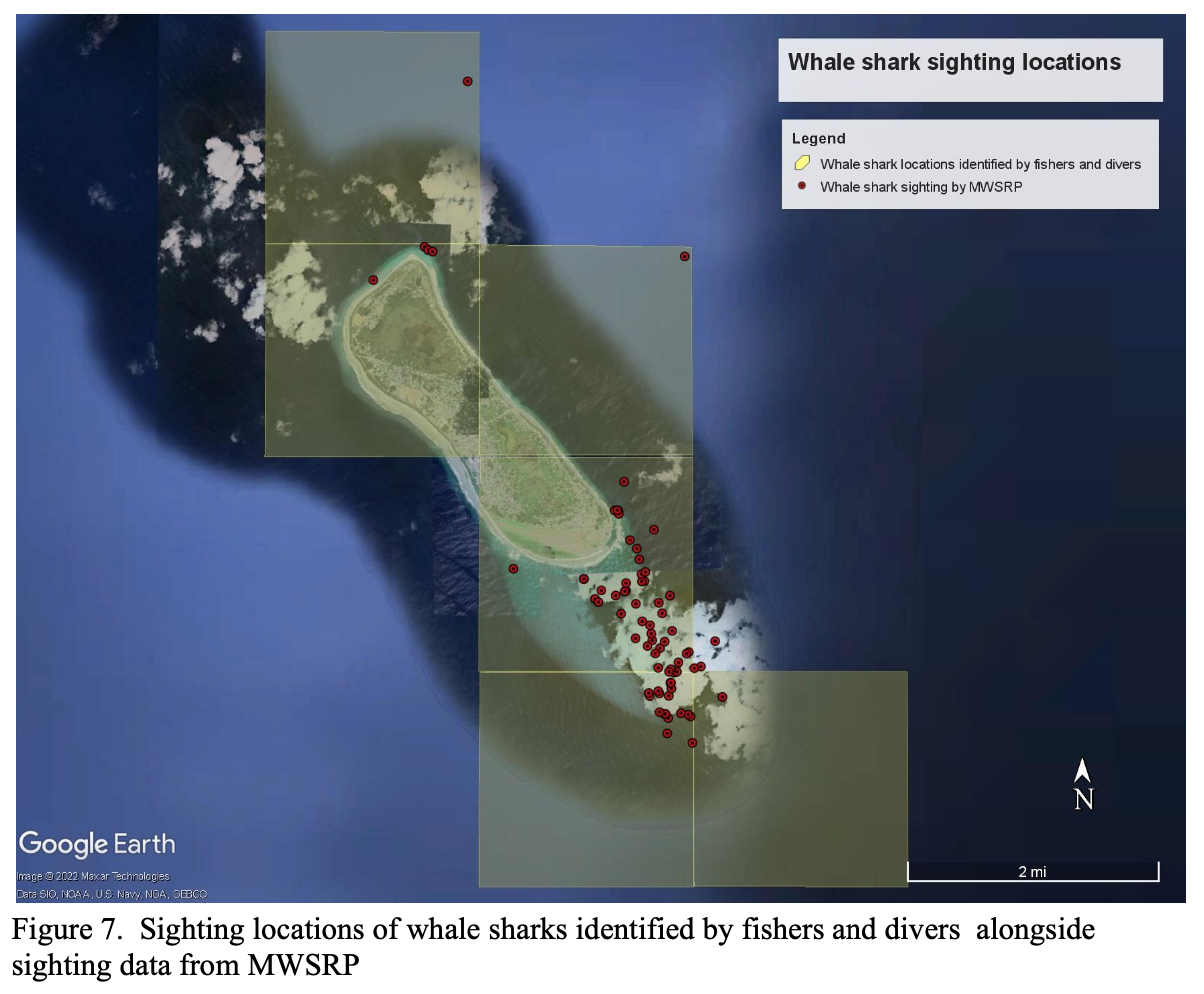
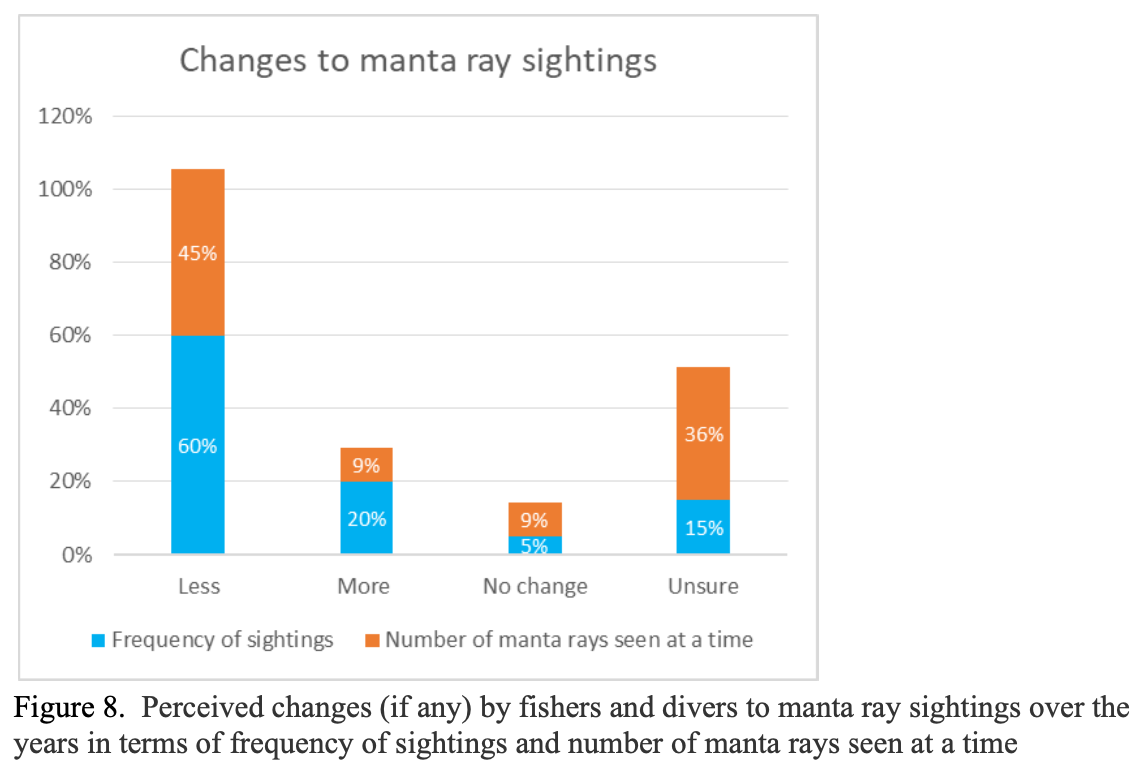
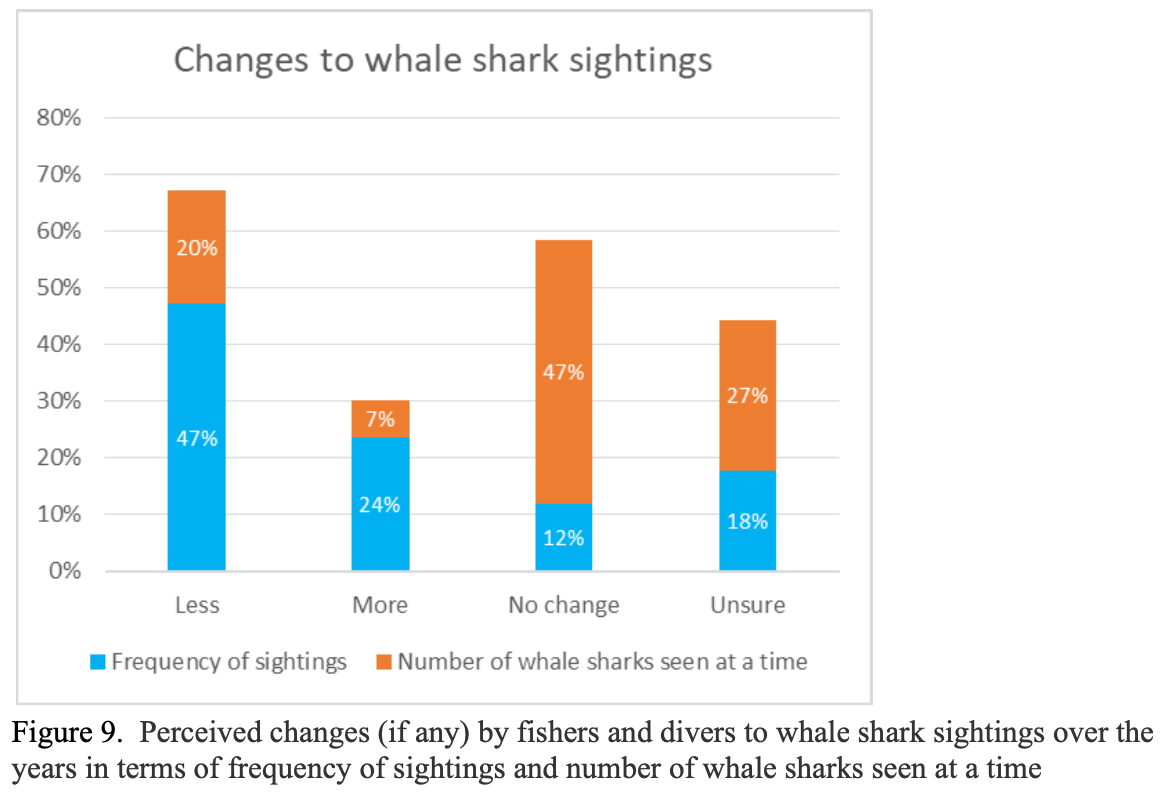
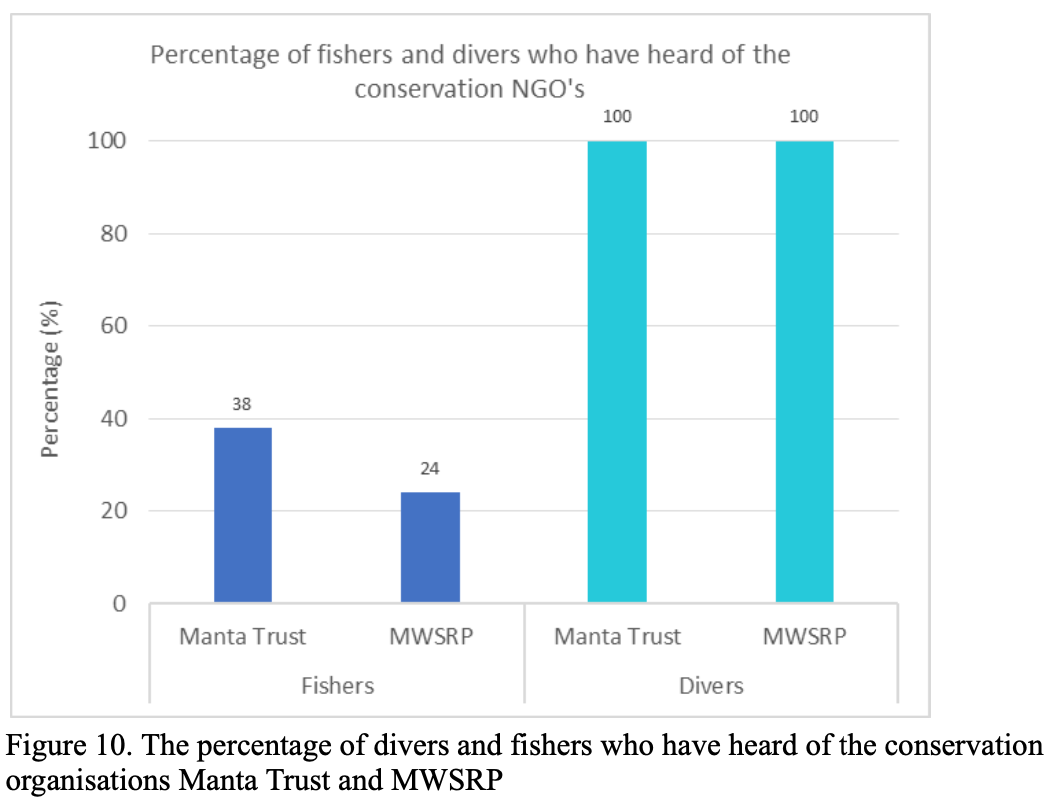
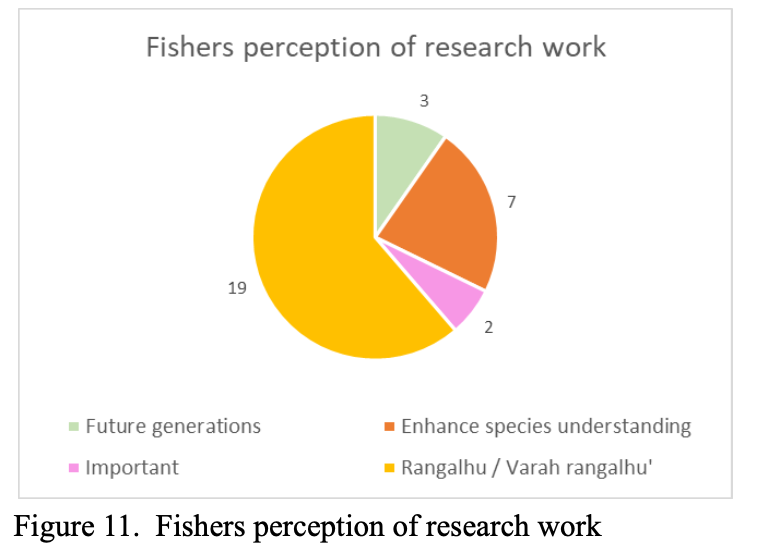
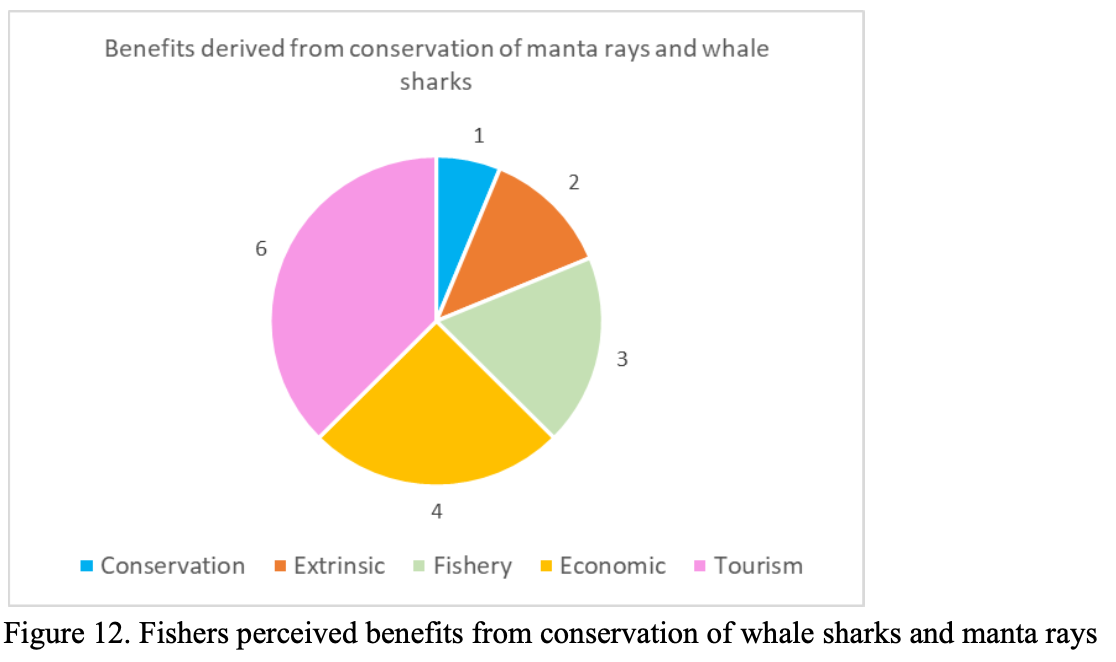
Summary: In the Maldives, marine megafauna, crucial culturally and economically, attract tourism and local interest. Focusing on the unique Fuvahmulah atoll's manta rays and whale sharks, this study uses Local Ecological Knowledge from citizen science data, dive log book records and anecdotal reports from fishers. Interviews reveal a wealth of information, indicating declining sightings over the years. Results stress the importance of involving local communities in research and conservation, as their support can enhance future strategies for these iconic species in the Maldives.
Abstract
Marine megafauna are considered culturally, economically and ecologically significant in the Maldives. They generate substantial monetary benefits through tourism, and are extremely popular with local communities due to their charismatic nature and sheer size. Studies on megafauna species in areas where significant hotspots coincide with remote locations are still limited throughout the world, including the Maldives. One such example is the unique and globally significant population of oceanic manta rays and whale sharks in Fuvahmulah atoll. Dedicated research attention has only been given to this site over the last few years. However, citizen science data, dive log book records and anecdotal reports from fishers have reported the presence of both species in Fuvahmulah waters throughout the years. This study aims to collate data on both species with the use of fishers and scuba divers’ Local Ecological Knowledge (LEK) by using semi-structured interviews to fill the gaps in knowledge. A total of 25 participants were interviewed, and the data gathered was analysed using a mixed method approach. The four main themes identified include (1) Experience levels and background information, (2) LEK on focus species, (3) Threats and (4) Perception and awareness of research and conservation efforts. Results suggest that both fishers and divers have a wealth of knowledge that can be used to understand both species better. They also indicated the sightings of oceanic manta rays and whale sharks have decreased throughout the years, both in terms of sighting frequency and numbers of individuals seen at a time, in contrast, the locations and time of species sightings remain similar. The study also identifies the need, as well as opportunity, for research and conservation efforts to be more inclusive of the local communities in their research communications, as participants were seen to be keen, supportive, and willing to learn about the research. Having the support of these experienced fishers and divers could be key to bringing improvements in future efforts informing conservation and management strategies.
Author Affiliations
Maldives National University
The Manta Trust
